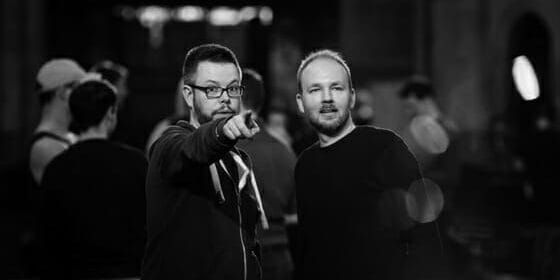Award-winning theatre company Antic Disposition present a thrilling new production of Shakespeare’s Richard III. This darkly comic drama will be staged in six of England’s most historic cathedrals and London’s ancient Temple Church.
The tour will include two special performances in Leicester Cathedral – the first production of Richard III to be performed in the building since the king’s remains were discovered buried under a nearby car park and reinterred in the Cathedral in 2015. Antic Disposition’s Richard III also visits Ely, Peterborough, Gloucester, Bristol and Salisbury Cathedrals. We chatted to co-director, Ben Horslen, to find out more about the tour.
Your latest show to tour England’s Cathedrals’ is Richard III, why did you choose this one to do next?
Richard III is a play about a paranoid, woman-hating psychopath who lies and deceives his way to the top. In our current political climate, it seemed to us that this was a story that had come back into fashion!
You’ve had several successful Cathedral tours, the last being Henry V. What are the challenges of performing in a Cathedral versus a traditional Theatre?
The acoustics can be challenging. Shakespeare should normally be spoken swiftly but we do have to slow down a little to make sure the echo doesn’t interfere with the audience’s understanding. Clarity of speech is as important as volume, if not more so. But on the plus side, these beautiful and ancient buildings give us a setting that no theatre can match.
How have audiences reacted to their surroundings?
Obviously, cathedrals are normally used for quite solemn purposes, which can be slightly intimidating for an audience. It can sometimes take them a little while to warm up (quite literally, when we were performing in February!) but there is something particularly spine-tingling for an audience watching Shakespeare’s histories in buildings that were already standing when he wrote them.
You’ll perform Richard III at Leicester Cathedral, where the King is now buried. Do you feel a certain responsibility as the first people to do this?
Yes. Richard III is a great play but bad history, and there is little hard historical evidence for many of the crimes that Shakespeare attributes to his fictional Richard. It’s important that this is acknowledged, so we have worked with a historian to include an article in our programme that highlights the discrepancies and points out some of the good things that Richard did in his lifetime.
Why did you decide to perform it at Leicester Cathedral and did you face any problems organising it?
As we were visiting other cathedrals in the Midlands, it seemed strange not to visit the location now most closely associated with Richard. The Leicester performances have attracted some controversy, but the Dean and Chapter have been very supportive of the production from the outset.
The play has had a modern updating, how do you go about modernising the work of Shakespeare?
Our production is set in the modern day but we haven’t tinkered with the language – it’s still Shakespeare’s play, although it has been cut somewhat as the full script runs for more than four hours. At its heart, it’s a story about power, family and revenge, and these are themes that are always modern.
What would you say to anyone who hasn’t seen one of your productions yet?
To expect a fast-moving, visually striking production in a spectacular setting – and a very warm welcome!




















It’s a terrible idea to stage this play in the location where the actual king is buried. Disrespectful, dishonourable and in extremely bad taste. As the acoustics are a challenge, why not move it to the Guildhall, for example, still in the vicinity of the cathedral, but you will not be mataphorically ‘dansing on his grave’?